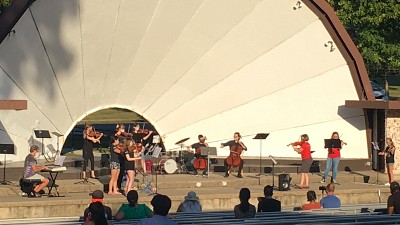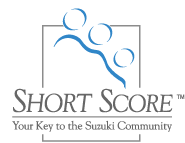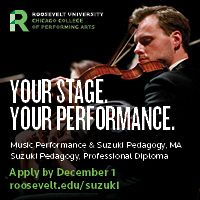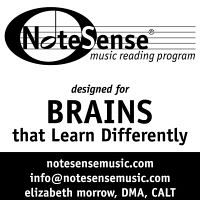| View Online Translate: Español / Français / Português | ||||||||||||||||||||||||||||||||||||||||||||||||||||||||||||||||||||||||||||||||||||
| ||||||||||||||||||||||||||||||||||||||||||||||||||||||||||||||||||||||||||||||||||||
Summer Online Adventures: An Environment with Heart As many events and lessons moved online this summer, we were all launched into a new adventure! During these past months, the environment has shifted to include more time at home. Listening in the car is no longer the norm, parents are taking a more active role in lessons, and we all have adapted quickly. Students and teachers involved in online learning this past summer have given feedback about their classes. From the wisdom of a 9 year old: “So many people come together to play great music, I do not want this to stop!”Another view from a 12 year old: “We all stayed together (while still being apart) even though these times are tough. I like seeing the other students and getting individual feedback” And for teachers, online learning was a real boost: “It was great to see colleagues and hear new ideas.” We will continually learn more, refine our teaching both in person and online, and grow admirable hearts as we work together. People are venturing out together around music, connecting from differing backgrounds, exploring and listening to new ideas, recording and listening more. This has all helped expand and grow more beauty in this time when connection and beauty are needed the most. We are still connecting with heart through the online format. —MaryLou Roberts Book Circle—How to Be an AntiracistThere are 3 spots left for the book circle, and is open to current SAA members. How to Be an Antiracist, by Ibram X. Kendi Dates:
Institute Directors Conference2020 has been a year of challenges, and the Institute Directors who attended the first Virtual Institute Directors Conference met together for three days of brave conversation seeking collaboration and solutions. Guided by Dr. Kay Collier McLaughlin, some sessions addressed new challenges such as the pandemic response and virtual Institutes; another provided Institute Directors the opportunity to dialogue with the Teacher Development Advisory Committee (TDAC). In our final session, we began to discuss the timely issues of diversity, equity, inclusion and accessibility at Institutes. From the perspective of the organizers, one great success of the Conference was courteous conversation among people of differing opinions. With Directors participating from the United States, Canada, Mexico, Peru, Brazil, and Belize, the Conference made great strides towards developing a collaborative community of Institute Directors. Four newly-created Action Teams will focus their efforts on Virtual Institutes; DEIA Training; establishing connections between Institute Directors, Teacher Trainers and TDAC; and developing a reference of Best Practices for Institutes. Besides ongoing conversation in the Suzuki Institute Director Exchange, we are scheduling monthly Institute Director Zoom meet-ups for training, discussion, and socializing. Keeping the Suzuki philosophy as our guide, and working toward the happiness of all children, we hear the remarks of one Conference participant loud and clear: “The essence of the Suzuki philosophy is that we focus on one point, moving step-by-step with HOPE.” That is what the Institute Directors will continue to aim for, one Institute at a time.
Suzuki in the Schools NewsThe Suzuki in the Schools committee is happy to announce that the Rachel Barton Pine Foundation has granted us permission to arrange select pieces from the Music by Black Composers, Violin Volume 1 for compatible string ensemble. Four pieces from this collection have been arranged for string trio with piano and are ready for sharing. Each piece includes melody, harmony and bass line for all string instruments with piano accompaniment. These arrangements can be used in studio, group class or in string class in like instrument or in mixed instrument ensembles. These arrangements are available free to string teachers. Please contact the SIS committee at suzukiintheschools@gmail.com or Winifred Crock for PDF copies of these works. We recommend purchasing Music by Black Composers, Violin Volume 1 for historical and composer information and background. We are also researching other music materials for use in studio, group class and string classes. We are offering an alternative piece to the often used folksong “Chicken on a Fencepost.” The new piece “Froggie in the Meadow” and its rhythm variations support the same pedagogical concept as “Chickens,” i.e., stop and start open string rhythm ensemble and tone development. It is available through the gmail address above or from Winifred. Finally, we will offer our first Learning Lab for Suzuki in the Schools teachers in October. We will announce that date, time and topic soon. Suzuki Early Childhood Education NewsSECE Revision Committee Co-Chairs Sharon Jones and Lynn McCall have been working throughout the summer creating a plan of action to facilitate the revision process for the English language SECE curriculum. Thus far, listening sessions have taken place with SECE teacher trainers and Stage 5 SECE teachers. We have also received feedback from other teachers within the SECE community, which we have appreciated and taken into careful consideration. Advisors within the SAA are being approached, and we are pleased to announce that Jodie St. Clair, Jenny Mendoza, and Edmund Sprunger have agreed to act as advisors to the SECE Revision Committee. The work of researching appropriate repertoire for replacement of some of the current curriculum is ongoing. We are also in the process of seeking out Early Childhood DEIA training for ourselves and our advisors before any curriculum decisions will be made. More updates to come!
American Suzuki Journal – Call for SubmissionsWe want to hear from you! The ASJ is calling on our colleagues of all cultural backgrounds to share how you are addressing racial equity within your own communities and studios. What programs do you have in place to ensure a more just Suzuki community? What resources can you share with other teachers who are starting the journey of making Suzuki education more equitable? What have you learned along the way? We at the SAA recognize our responsibility as an organization to address diversity, equity, and inclusion; at the same time, we wish to share the important work you are doing in your own studios and communities. Likewise, as the COVID-19 pandemic continues and virtual and other socially-distant teaching is necessary, we’re learning more every day. By sharing what you’ve learned, you can help other teachers who are facing the same challenges. Do you have great ideas for group class on Zoom? Safe and socially distant recitals? Wisdom for returning to in-person lessons? Consider writing an article for ASJ! In the early days of the Suzuki movement, Suzuki teaching was a polyphony of individual teachers experimenting with Dr. Suzuki’s ideas mixed with their own knowledge, all the while trying new things, and of course, sharing these ideas with their colleagues. The American Suzuki Journal bore witness to this process and is a record of those times. As the American Suzuki Journal continues to chronicle new ideas for Suzuki teaching and learning, we also look forward to recording the Association’s progress in becoming a more diverse and inclusive community and how we face the ongoing presence of the novel coronavirus. Please see https://suzukiassociation.org/news/guidelines/ for article guidelines. Submit articles and questions to publications@suzukiassociation.org. —Libby Felts, editor
Communications Updates:If you are not receiving messages from the SAA, remember that you can always update your email and web settings under your SAA Account. You also may wish to add the suzukiassociation.org domain to your email providers whitelist and add the info@suzukiassociation.org email address to your contacts. If your mailbox is full or your email provider has overly aggressive SPAM settings, messages might not be delivered because of your email provider. All messages sent by the SAA are DKIM verified and signed and sent through Amazon AWS.
NIU Suzuki Strings share in vigil for Elijah McClain The NIU Suzuki Strings, under the direction of Ann Montzka Smelser, performed Flourence Price’s “Adoration” for a Vigil along with other artists, musicians and poets. They honored the life of violinist, Elijah McClain from Aurora, Colorado, who died in police custody last summer.
Have a great picture to share? We are looking for photos of students performing in their community. Did you invite the neighborhood to a book recital? Or the general public to a group concert? Have you played in an assisted living facility, street fair, or mall? Submit your own picture today!
| ||||||||||||||||||||||||||||||||||||||||||||||||||||||||||||||||||||||||||||||||||||
Translate: Español / Français / Português The Suzuki Association of the Americas is a nonprofit organization of teachers, parents, and educators dedicated to the advancement of the Suzuki Method in the Americas. You received this message because you are a member or supporter of the Suzuki Association of the Americas. Suzuki Association of the Americas | ||||||||||||||||||||||||||||||||||||||||||||||||||||||||||||||||||||||||||||||||||||




